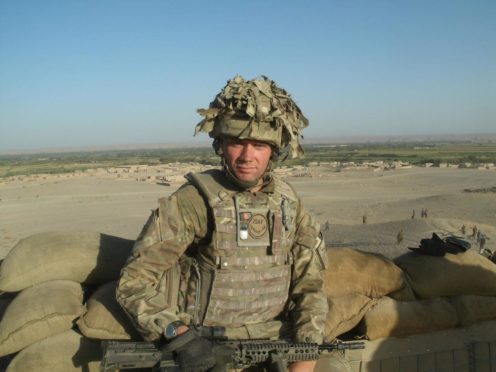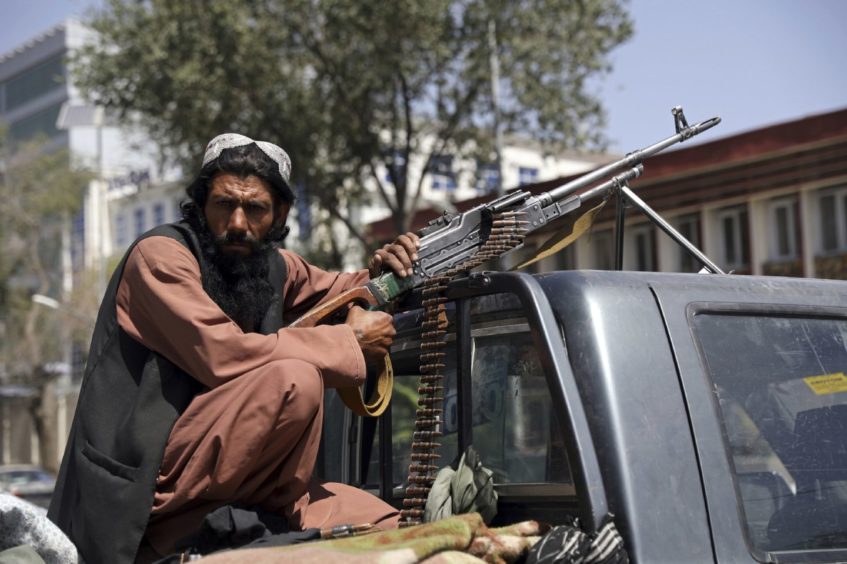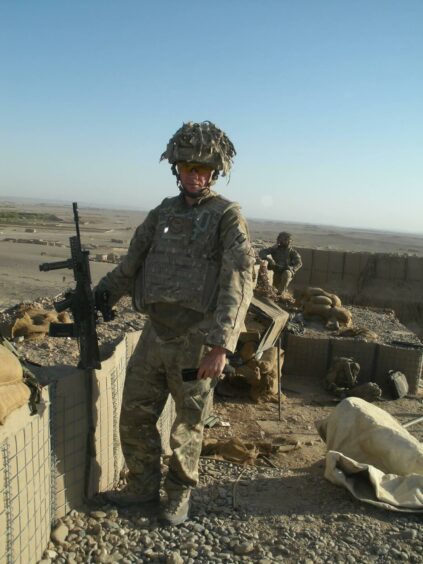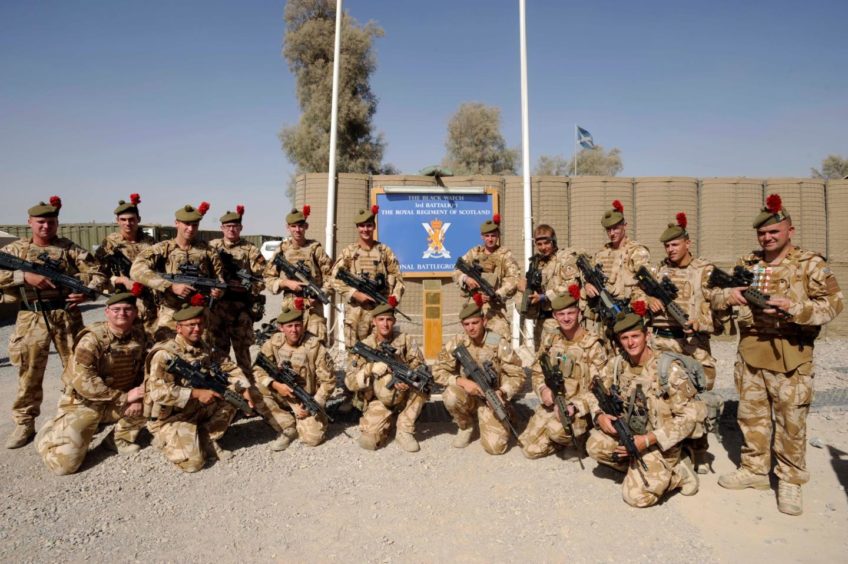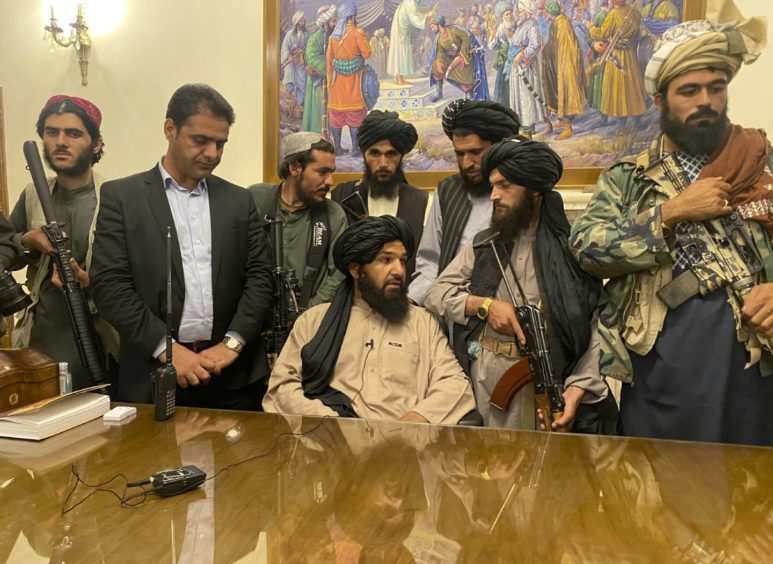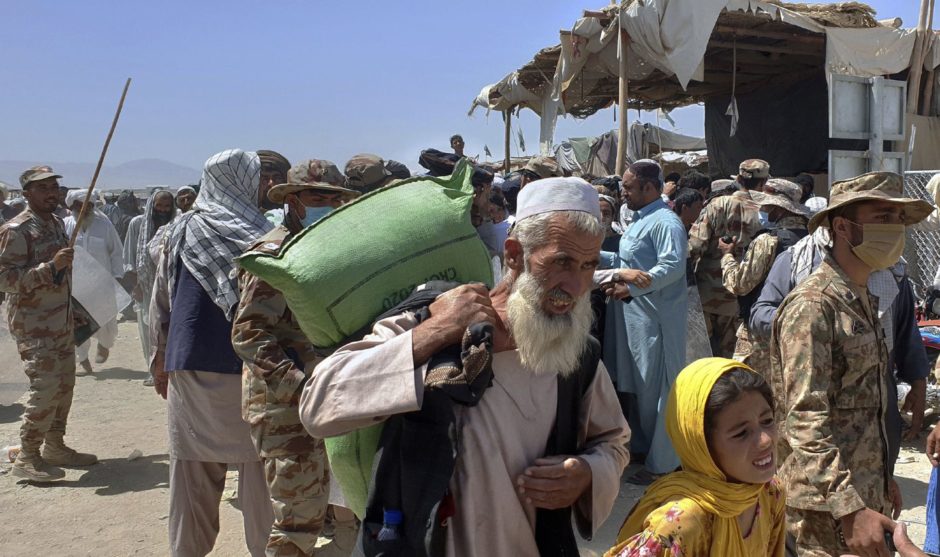“We are content with discord, we are content with alarms, we are content with blood. But we will never be content with a master.” A quote from one of the heavily armed Taliban chieftains sweeping across Kabul as they complete their takeover of Afghanistan?
No, these are the words of an Afghan tribal leader to diplomat Mountstuart Elphinstone in 1809.
Afghanistan, the “graveyard of empires”, has been scuppering global powers for millennia.
Few things change it seems.
Afghanistan’s collapse into anarchy and the Taliban’s swift seizure of power has grabbed headlines, triggered horrific news footage and shocked the world.
It doesn’t surprise me though.
For me, and many of the thousands of other Scottish soldiers who served there, it all has a sad air of inevitability.
Afghanistan through a soldier’s eyes
I was lucky to go to Afghanistan twice – the first time as a news reporter, the second time as an infantry soldier.
In 2009, I was embedded with the Black Watch as they launched airborne strike operations into the Taliban controlled badlands.
It was a life changer.
After that, I wanted the full Afghan experience, to immerse myself in the soldiering and then write about it.
So I signed up to the Army Reserves for basic training, then eventually joined a regular Army battalion to serve on the frontline.
We were based at OP Dara, the most remote British base in Afghanistan in 2013.
There was no running water, ration packs to eat, sani-bags when we needed to go to the toilet and sporadic mortar fire at us for six and a half months.
And then after a month, my friend and two of his comrades were killed in a massive improvised explosive device blast.
So Afghanistan is seared into my life. It will always remain so.
Afghanistan mission messy from the outset
The campaign in Afghanistan was our generation’s war and names like Musa Qala, Sangin, Kandahar and Gereshk are embedded in our collective consciousness.
But the British mission seemed muddled from the start, dogged by “mission creep”.
First, we were there to wipe out terrorism and stop Osama Bin Laden building a safe haven.
Then, it was nation building, making Afghanistan a functioning state.
Next, it was bolstering Afghan security forces.
Then it was eradicating the opium poppy, the Taliban’s main source of income.
As soldiers we were hit with bewildering arrays of Rules Of Engagement when it came to deciding when it was lawful to destroy the enemy.
Teenage “Jocks” were asked to become on the spot lawyers, making life or death decisions in the furnace heat of the Afghan desert.
Life is cheap in Afghanistan though.
It is deeply sad that so many died but our troops can hold their heads high.
The top brass and politicians, not so much.
I fear failure to act on refugee crisis
There was a sense back then that we were in Afghanistan because Britain, as usual, had followed blindly in the US’s footsteps. The junior partner in the so-called special relationship.
Now I wonder if the UK Government will fulfil its moral responsibility and let Afghans settle here?
Personally, I can’t see Boris Johnson and his colleagues changing tack and suddenly saying thousands of refugees and asylum seekers are welcome.
But failure to do so will truly be a shameful act.
Nobel peace laureate Malala Yousafzai, who was shot in the head by Taliban gunmen in 2012, says countries need to open their borders to Afghan refugees https://t.co/Fi4zRx8uQo
— BBC News (World) (@BBCWorld) August 16, 2021
Among politicians, the historical and cultural ignorance of Afghanistan – the “sandpit” to soldiers – will never cease to amaze me.
It’s been a marker of our involvement with the place over the decades.
Invaders such as Darius the Great, Genghis Khan, Alexander the Great, Queen Victoria, Leonid Brezhnev all tried to conquer the place.
Most failed.
And the Taliban have long controlled huge swathes of the place – a shadow government – even when the Brits and US were there in significant numbers.
It’s a phenomenon I saw daily with my own eyes when there as a soldier.
I am glad I went. I would never change that.
It was like visiting another planet, an experience unlike any other.
Helmand was like the stone age. Imagine Scotland c. 1000 AD
And the Afghans are like auld Highlanders – they will fight to the death and they don’t like foreigners sticking their nose in.
But it never felt like a real functioning country in the way we understand it in the west.
And it’s hard not to feel that politically it was an exercise in futility.
Would I say it was worth it though?
Yes, but then I have nothing to complain about. I came back.
Many did not. My comrades died doing what they wanted to do –fighting and serving in the toughest place on planet earth.
Many more were scarred by their experiences mentally and physically.
The greatest irony though? I still kind of miss it.
